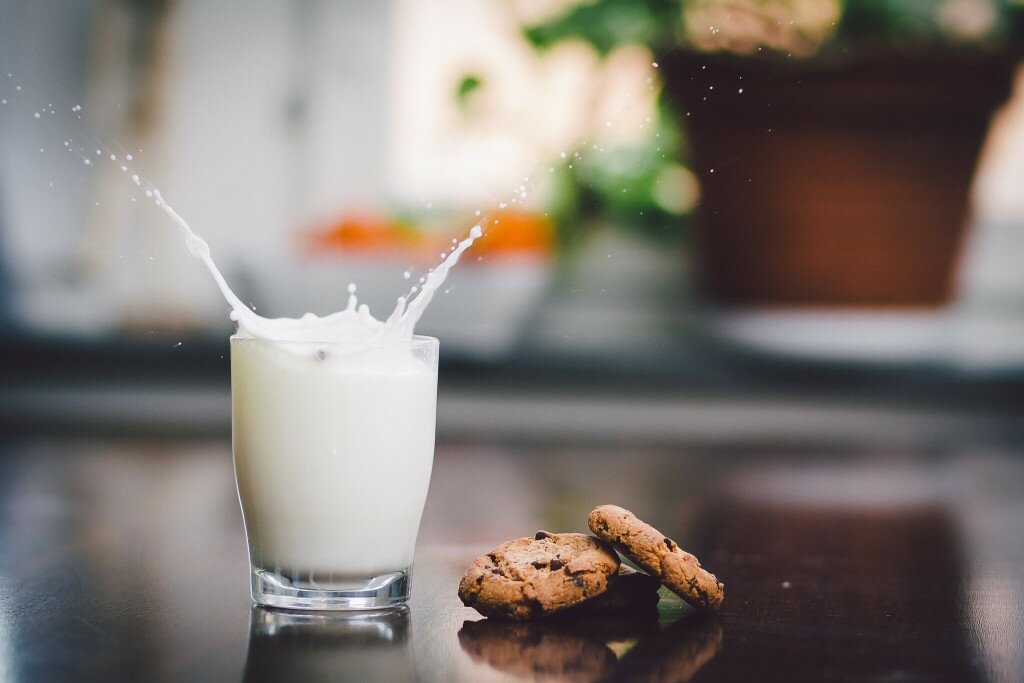Bringing a newborn into the world is an exciting experience that requires paying more attention to a healthy diet for you and your baby.
Pregnancy requires a greater need for nutrients. Need more proteins and nutrients, especially iron, folic acid, iodine and zinc.
The old saying “eating for two” does not mean that during pregnancy you should eat twice more. All you need is a little more energy when you’re pregnant, so the emphasis is on foods with high nutritional value. Then every bite counts. Research has shown that the food mother eats during pregnancy can affect on the baby’s development, as well as the baby’s health later in life. It is vital to feed variate during pregnancy. The diet should be based on all five food groups.

Nutrition in pregnancy – menu
During pregnancy your need for nutrients increases, to be healthy and to the needs of unborn babies were met. It should observe the following nutrients.
Calcium
During pregnancy, especially in the last trimester, your baby needs calcium to build healthy bones. Fortunately, during pregnancy it is better to absorb calcium from food, so that your baby needs met. Therefore, the recommended daily dose of calcium for pregnant and lactating women is the same as for women who are not pregnant (1000mg day). The need for calcium during pregnancy can be met by entering 3-4 servings dairy products every day. One portion includes: a glass of milk (250 ml), packaging of yogurt (200 g) and 2 slices of cheese (40g).
Folate
Folic acid is a type of B vitamin that is found in green leafy vegetables, fruit (citrus fruits, berries and bananas) and legumes. Insufficient folic acid in the early stages of pregnancy is associated with malformations of nervous pipes, such as spina bifida. To reduce the risk of neural tube defects in newborns, is recommended that, in addition to a healthy diet rich in folic acid, taking an additional 400 micrograms of folic acid daily at least a month before conception and in the first three months of pregnancy. To meet these needs, you can take supplements with folic acid.
Iron
Your need for iron is greatly increased during pregnancy, particularly in the second and the third trimester, when you have more blood in the body to meet the needs of the placenta and the baby. To prevent iron deficiency, should eat plenty of foods rich in iron. Red meat is one of the richest sources. Chicken, pork and fish contain moderate amounts. Smaller amounts of iron are found in legumes, green leafy vegetables and cereals with added iron. Meat contains the highest concentration of iron. Foods rich in vitamin C, such as tomatoes and orange, facilitate the absorption of iron from plant sources.
Iodine
Iodine is essential for the development of the brain and nervous system of your baby. During pregnancy need for iodine increases by 47%, during the period of breast-feeding for 80%. Milk products, seafood and bread with added iodine are good sources. However, the recommended additional iodine intake through supplements to your baby needs is certainly met.
Zinc
Zinc is required for normal growth and development of bone marrow and many other body parts. There are many different sources from which pregnant women can supply zinc. It can be entered only through food, without the need for supplements. Zinc is best absorbed from animal foods such as red meat, fish and dairy products, and less of it is in plant foods such as nuts,
legumes and grains.

Protein
The pregnancy is necessary to add more protein for the baby’s growth and the changes in your body, such as for example breast augmentation. Healthy and balanced diet, you enter enough protein to meet the needs during pregnancy.
Pregnant women should avoid the following foods:
• The soft, semi-soft and some sort of cheeses (such as brie, camembert, ricotta, feta and blue cheese). Soft cheeses are safe if cooked at a temperature above 65 degrees and if eaten hot, eg. ricotta and spinach cannelloni of or topping of cheese on pizza).
• Ice cream on tap.
• Unpasteurized milk products. Although almost all dairy products must be pasteurized, some imported cheeses may be unpasteurized. It is recommended that check the label.
The following types of milk products are safe to use:
• Pasteurized dairy products such as milk and yogurt.
• Hard cheeses such as cheddar or delicious local cheese.
• Processed cheese, cheese spreads, cream cheese and cottage cheese (a special type of granular cheese), which you need to buy only if packaged by the manufacturer.
• Packaged frozen ice cream.

Keep a healthy pregnancy
Nutrition and food safety during pregnancy has a beneficial effect on you and your baby. A varied diet that includes foods from all five groups, with lots of fruit and vegetables and three servings of dairy products a day supplies you and your baby essential nutrients needed for this important period of life. For individual nutrition plan consult your physician or nutritionist.




